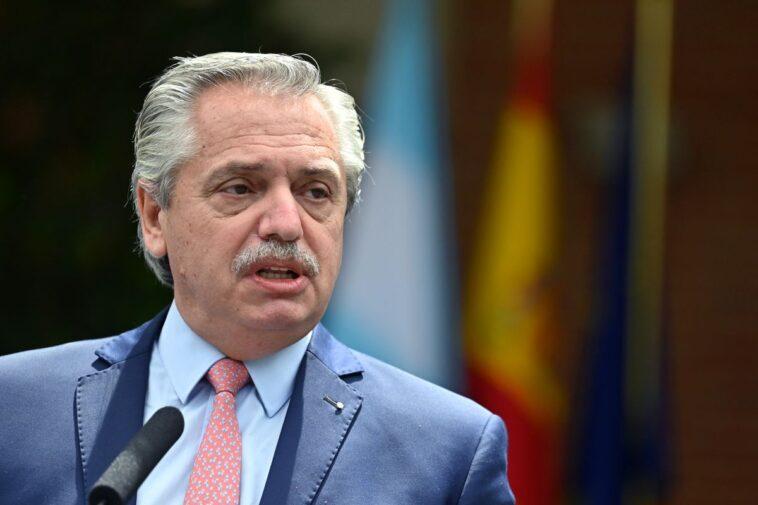Given the continuity of the Russian offensive in Ukraine that has a large part of the international community on edge, and to guarantee its presence during the sessions in Congress in which the Government’s agreement with the International Monetary Fund (IMF) will possibly be debated, President Alberto Fernández decided to cancel a tour he was going to do in the Middle East.
The national president had planned to visit the United Arab Emirates and Saudi Arabia between March 14 and 16, both aligned with the policies of the United States, but finally, he chose to stay in Buenos Aires and instead only the Minister of Foreign Affairs will go. Exteriors and Worship, Santiago Cafiero.
According to what official sources had reported days ago, the first stop on this trip was going to be in the city of Abu Dhabi, where the government offices of the federal monarchy that encompasses seven emirates are located, and then Dubai, the center finance of this state.
The objective was to move forward with the search for new investments and diversify the export offer with this country of 83,600 square kilometers, located on the Persian Gulf, where 9.3 million people currently live.
Alberto Fernández had received the invitation to go to the United Arab Emirates from his own president, Sheikh Khalifa bin Zayed Al Nahayan, who suggested that he visit the Dubai Expo on Tuesday, March 15, when it will be Argentina Day.
In this framework, the national president had organized to leave the next morning for Saudi Arabia, where he was going to close his international tour, also with the idea of increasing trade with this place.
On the other hand, for the moment the President maintains his trip to Chile scheduled for this March 11, when he will attend the inauguration of his Chilean counterpart, Gabriel Boric, whom he considers an essential regional ally.
In fact, Alberto Fernández had planned to leave directly from Santiago de Chile to the United Arab Emirates but finally decided to spend less than 24 hours on trans-Andean soil and then return to Buenos Aires and continue with his usual schedule.
Due to the coronavirus pandemic, capacity at Boric’s inauguration ceremony will be limited to only 500 people, who must have their complete vaccination schedule. Seats will be placed instead of chairs so that social distancing is respected.
The delegation that will accompany him on the other side of the mountain range has not yet been fully defined. Chancellor Santiago Cafiero will surely be there, who will be in charge of carrying out the visit to the Middle East on behalf of the Argentine head of state.
Alberto Fernández’s last tour was at the beginning of February, a few days before the armed conflict broke out in Ukraine when he visited Russia, China and Barbados to meet with the leaders of each of those countries, Vladimir Putin, Xi Jinping and Mia Mottley, respectively.
On the Caribbean island, which has about 300,000 inhabitants, the Argentine head of state fulfilled his first official acts as the new head of the Community of Latin American and the Caribbean States, a position he has held since January 7.
Previously, in Moscow, the President conveyed to Putin his desire to “see a way for Argentina to become a gateway for Russia in Latin America” and to “leave that great dependency it has on the Fund and on the United States Joined”.
Precisely, one of the reasons why Alberto Fernández decided to cancel his trip to the Middle East was the closeness of the parliamentary treatment of the agreement reached by the Government with the IMF, which has already entered the Chamber of Deputies and could be debated this week.
The approval of this text is not guaranteed, since there are critical sectors within the Frente de Todos itself that, as Infobae published, consider that the “fine print” did not change the main questions about the negotiation carried out by the Minister of Economy, Martin Guzman.
In this way, while La Cámpora emphasizes its differences with the new economic program, the groups and parties linked to Alberto Fernández begin to respond with increasing vehemence and organize themselves to “defend” the President.
The agreement will be discussed these days in committee and the Government hopes that it will be approved quickly in that instance so that it can be voted on in the session next Thursday or, at the latest, on Friday.




GIPHY App Key not set. Please check settings